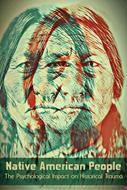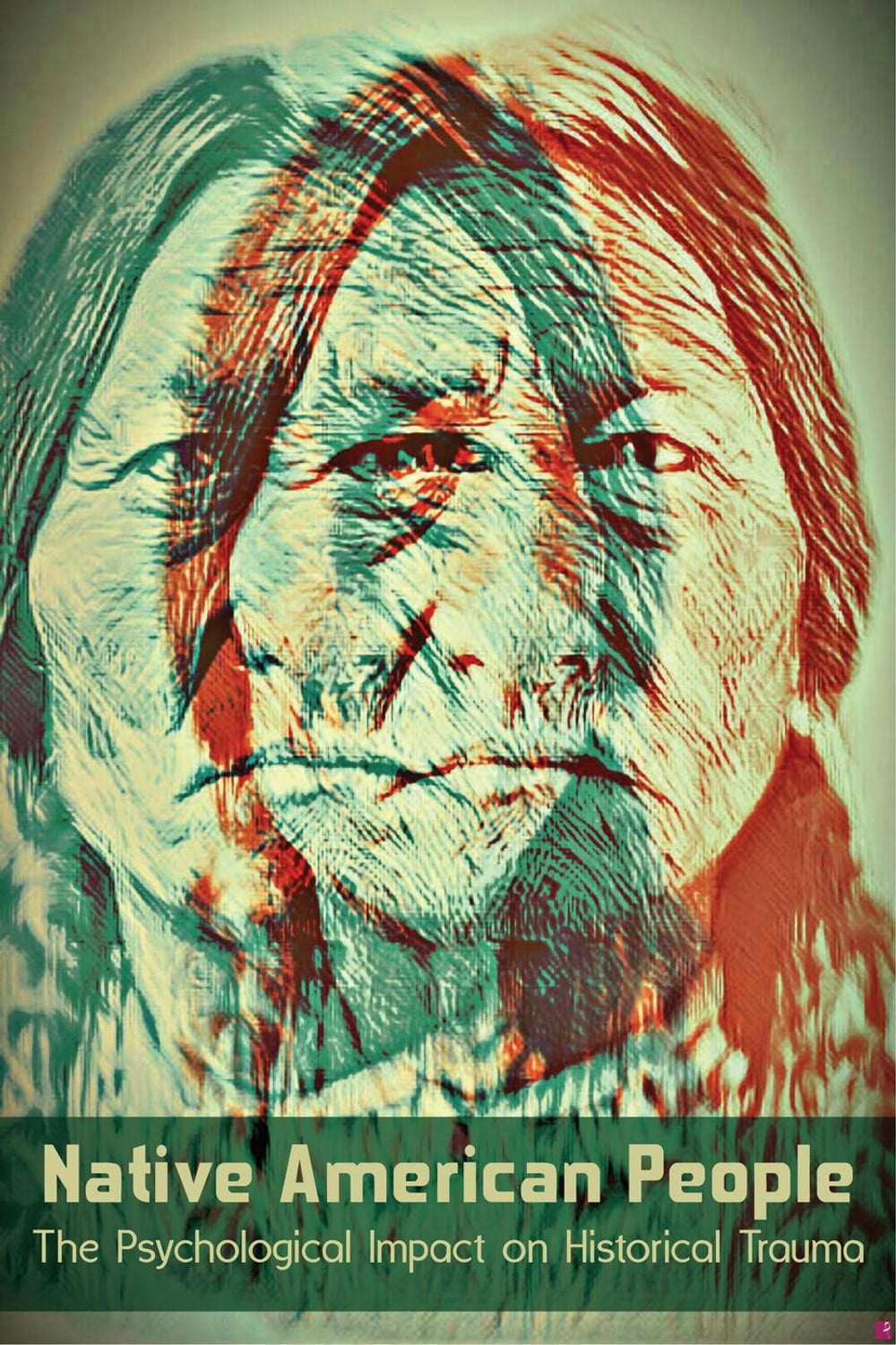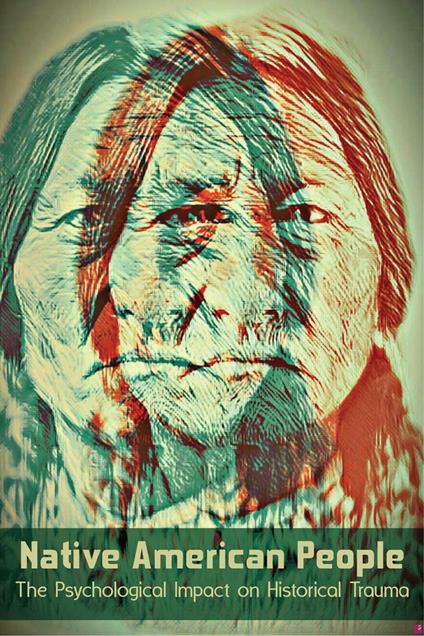Native American People The Psychological Impact of Historical Trauma
The Psychological Impact of Historical Trauma on Native American People Native American historical trauma is similar to other massive generational group traumas. Past examples include the Jewish holocaust, slavery of the African people in the United States, and treatment of the Japanese Americans in the U.S. during World War II. Understanding the history of Native Americans allows for the design of culturally specific preventative and therapeutic interventions. Contrary to what is taught in modern history books, Native Americans were an advanced culture deeply immersed in their environments. From the invasion by the Spanish in the 1400s to the scorched earth extermination policies of the United States in the 1800s, Native Americans endured attempted genocide, forced relocation and confinement to reservations, and forced assimilation. Historical trauma is generational and dwells deep in the souls of Native American individuals and communities all across the United States. For any healing to occur, one must take a close look at the root cause of historical trauma for the Native American people. The focus of this book is to explore and develop ideas that will assist Native Americans in accessing which old ways are too biologically ingrained to do away with and what new ways must be taken on to come to terms with such a massively different environment. To understand the Native American people, it is essential to understand the environment in which they live, know their history, and see how this history has shaped them. It is equally important to understand and respect their worldview, which describes the thought process of a people or a culture. Native Americans were displaced from their traditional lands, their sacred sites were excavated, and their sacred objects were placed in private collections and museums. Their dead were exhumed from their traditional burial sites to make room for ranching and industry. Their artwork was never seen as separate from their culture. It was commercially reproduced and modified for Western tastes. Traditional ceremonies and stories were depicted, usually inaccurately, in novels, movies, and on television. Their way of life was disrupted, and they were forced to accept religious institutions whose dogmas often conflicted with Native American values. A variety of terms have been used interchangeably to refer to America's indigenous populations — "Indians," "Native Americans," "American Indians," Native peoples." The problem of terminology began with Columbus. He was lost. The people he met were not Indians because he was not in India. Still, for six centuries, these peoples have been called "Indians." They are many different peoples and many different nations with many other languages. To justify the use of "Indians," which some scholars find offensive, I refer to Sherman Alexie's remark during a reading in Milwaukee, Wisconsin, March 1993: "The white man tried to take our land, our sovereignty, and our languages. He gave us the word "Indian." Now he wants to take the word "Indian" away from us too. Well, he can't have it." Throughout this book, all these terms have been used interchangeably to best reflect the subject being discussed.
-
Autore:
-
Anno edizione:2021
-
Editore:
-
Formato:
-
Lingua:Inglese
Formato:
Gli eBook venduti da Feltrinelli.it sono in formato ePub e possono essere protetti da Adobe DRM. In caso di download di un file protetto da DRM si otterrà un file in formato .acs, (Adobe Content Server Message), che dovrà essere aperto tramite Adobe Digital Editions e autorizzato tramite un account Adobe, prima di poter essere letto su pc o trasferito su dispositivi compatibili.
Cloud:
Gli eBook venduti da Feltrinelli.it sono sincronizzati automaticamente su tutti i client di lettura Kobo successivamente all’acquisto. Grazie al Cloud Kobo i progressi di lettura, le note, le evidenziazioni vengono salvati e sincronizzati automaticamente su tutti i dispositivi e le APP di lettura Kobo utilizzati per la lettura.
Clicca qui per sapere come scaricare gli ebook utilizzando un pc con sistema operativo Windows



